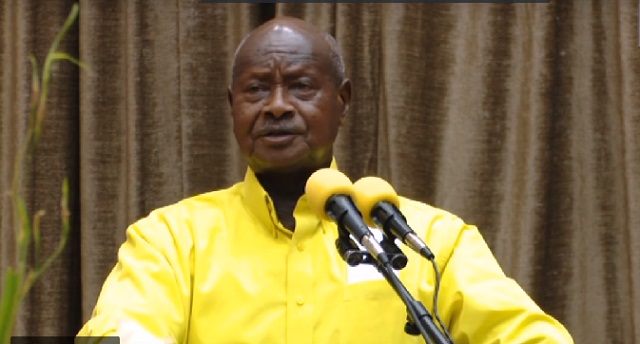
That means that as long as Kutesa is not pursued by any anticorruption entity in Uganda, he is most likely to remain free at home. But his freedom from prosecution in America may not be guaranteed, according to sources.
It should be recalled that the FBI picked interest in Kutesa after his wife was appointed as “a major member of the Board” of an NGO called the Global Sustainability Foundation (GSF) of Sheri Yan; another Chinese national, who was known for arranging meetings between diplomats and millionaire business executives and socialites. The appointment was significant to the FBI because Edith Kutesa was listed with the former 68th president of the UN General Assembly, John Ashe as GSF’s only two advisers. The FBI had Yan on their watch list and, therefore took interest in Ashe and the Kutesas. Yan was arrested by FBI agents in October 2015 and is accused of bribing John Ashe. Yan allegedly appointment of Ashe as a GSF adviser to enable her to pay him a monthly bribe of $20,000, supplemented by larger kickbacks.
It is not clear what, if any thing, was in it for the Kutesas. But tapping their phones and intercepting their emails gave away the Kutesas dealings with their alleged Chinese briber, Patrick Ho of China Energy Fund Committee (CEFC).
The CEFC Chairman is Ye Jianming, the powerful Chairman and Executive Director of CEFC China Energy Company Ltd, which is the parent company of CEFC and one of the 250 richest companies in the world.
Ye Jianming founded the CEFC and nurtured it into a think tank with consultative status with the UN. That is how Kutesa met Ho. The CEFC patronises former heads of states and hundreds of political leaders as its advisers and researchers. Kutesa, while he was President of the UN General Assembly, appointed Ye Jianming as “Special Honorary Advisor to the UN” in what is being seen as making a pass to himself as he used the same occasion to solicit the US$500,000 bribe.
Kutesa accepts soliciting and getting the money. But he denies that the money was a bribe and insisted it was a donation towards his foundation. But, according to the FBI, the NGO is fictitious. Kutesa allegedly used a fake organisation, forged letter heads, fake emails, addresses, and dates and dragged in the President’s name, and abused his office at the UN and Uganda Foreign Affairs for personal gain.
The FBI agent who investigated the case writes that: “Based on my review of email, I know, in substance and in part, that in or about February 2016, the Ugandan Foreign Minister (aided by his wife) solicited from defendant Chi Ping Patrick Ho aka “Patrick C.P. Ho”, a bribe which he characterised as a “donation/contribution” for a “foundation” that the Ugandan Foreign Minister wished to launch”.
“In reality,” the FBI notes elsewhere, “this payment was a bribe to obtain business advantages for the Energy Company in its efforts to secure contracts and ventures in Uganda’s financial and energy sectors.”
The document further reveals that Ho also provided the Ugandan Foreign Minister, as well as the President of Uganda, with promises of future benefits, including proposing to partner with both officials’ families in potentially lucrative joint ventures.
In the case of the alleged Museveni bribe, according to the FBI, Kutesa asked the Chinese for the money as a contribution to the election campaign of the President. It remains unclear if indeed he gave Museveni the money as a campaign donation from the Chinese.
In their book, `The politics of Elite Corruption in Africa; Uganda in Comparative African Perspective’, Prof. Roger Tangri of Stanford University, USA, and Andrew Mwenda of The Independent magazine, describe how Museveni solicits foreign money contributions during elections. They name past contributors as former Nigerian president Olusegun Obasanjo, the late Libyan leader Muammar Gadhafi, former Kenyan president Daniel Arap Moi, and former Tanzanian president Benjamin Mkapa.
They also point out that, under Uganda law, it is not illegal to seek such foreign contributions. However, the Political Parties and Organisations Act limits the contribution to maximum US$200,000 per year. So if Museveni, through Kutesa, got US$500,000 from the Chinese, it would be illegal.
Previously, the Ministry of Foreign Affairs issued a statement defending Kutesa. It noted that the interaction and engagement Kutesa had with Ho was in fulfillment of his official functions as president of the U.N. General Assembly.
“It is therefore erroneous to insinuate or infer that Hon. Sam Kutesa, from references made to him and CEFC…is linked to the bribery allegations,” a statement said. And that might be the end of the story.
 The Independent Uganda: You get the Truth we Pay the Price
The Independent Uganda: You get the Truth we Pay the Price



This fellow is untouchable surely. All those crimes are each enough to penalise any other ordinary mortal.
MUSEVENI has a serious inferiority complex towards KUTEESA , being the only man who has defeated him, at least on public record, in a fair fight.
KUTEESA is happy to seat in the background and let M7 do all the shouting, spitting fire, while he is doing his deals in the background, just like a Mugaga lets his askari do all the dirty work while he is enjoying his sleep.
KUTEESA never has a single sleepless night while M7 had to lie through his teeth about not knowing whether the so called “aid” money reached the right recipients, really!!!!!!!!!!
Not a single dime worth its value moves in or out or within Uganda without M7 knowing, the reason MBABAZI was not able to mobilize any funds for his campaign.
I think Transparency International made perfect fools of themselves with that award to the president. That they conceived of it at all makes no sense at all – given Uganda’s rankings in their own anti-corruption index. That they went ahead to give it after the revelations in the US court is simply ridiculous!